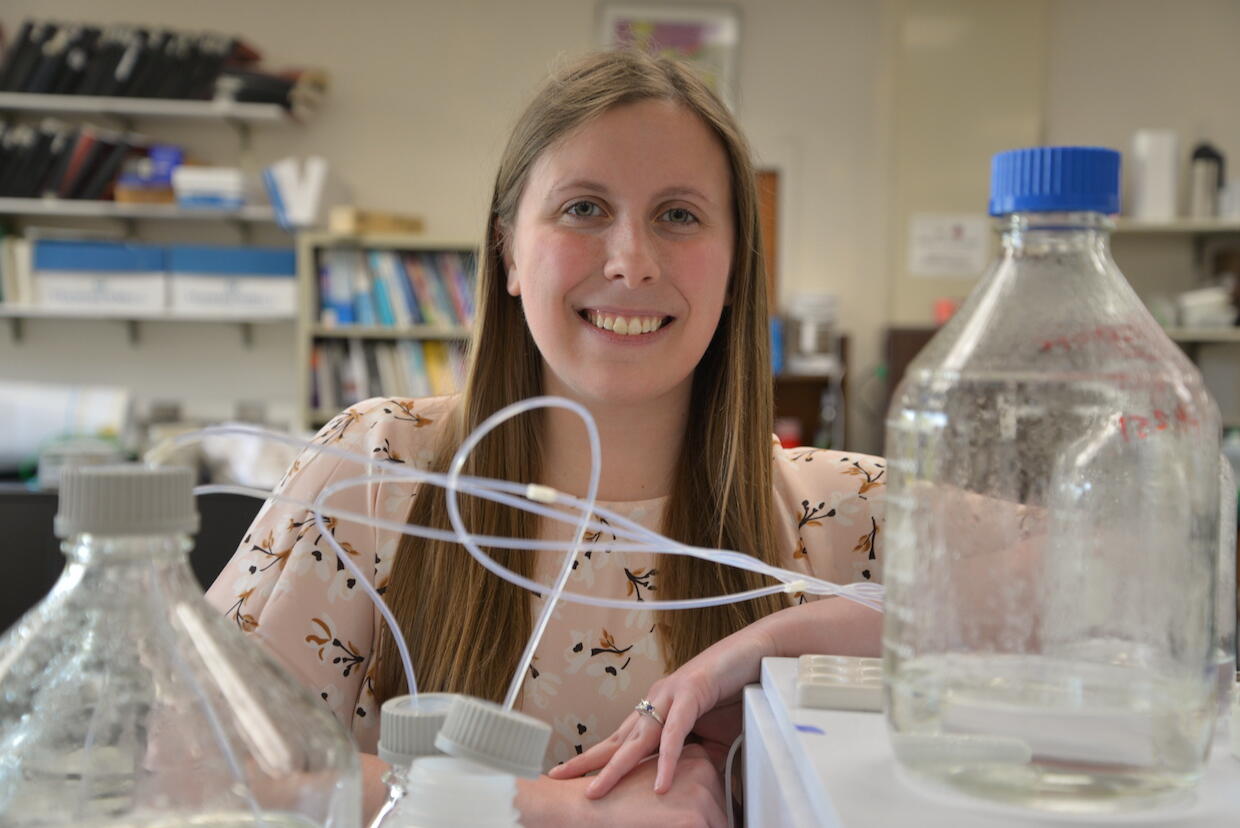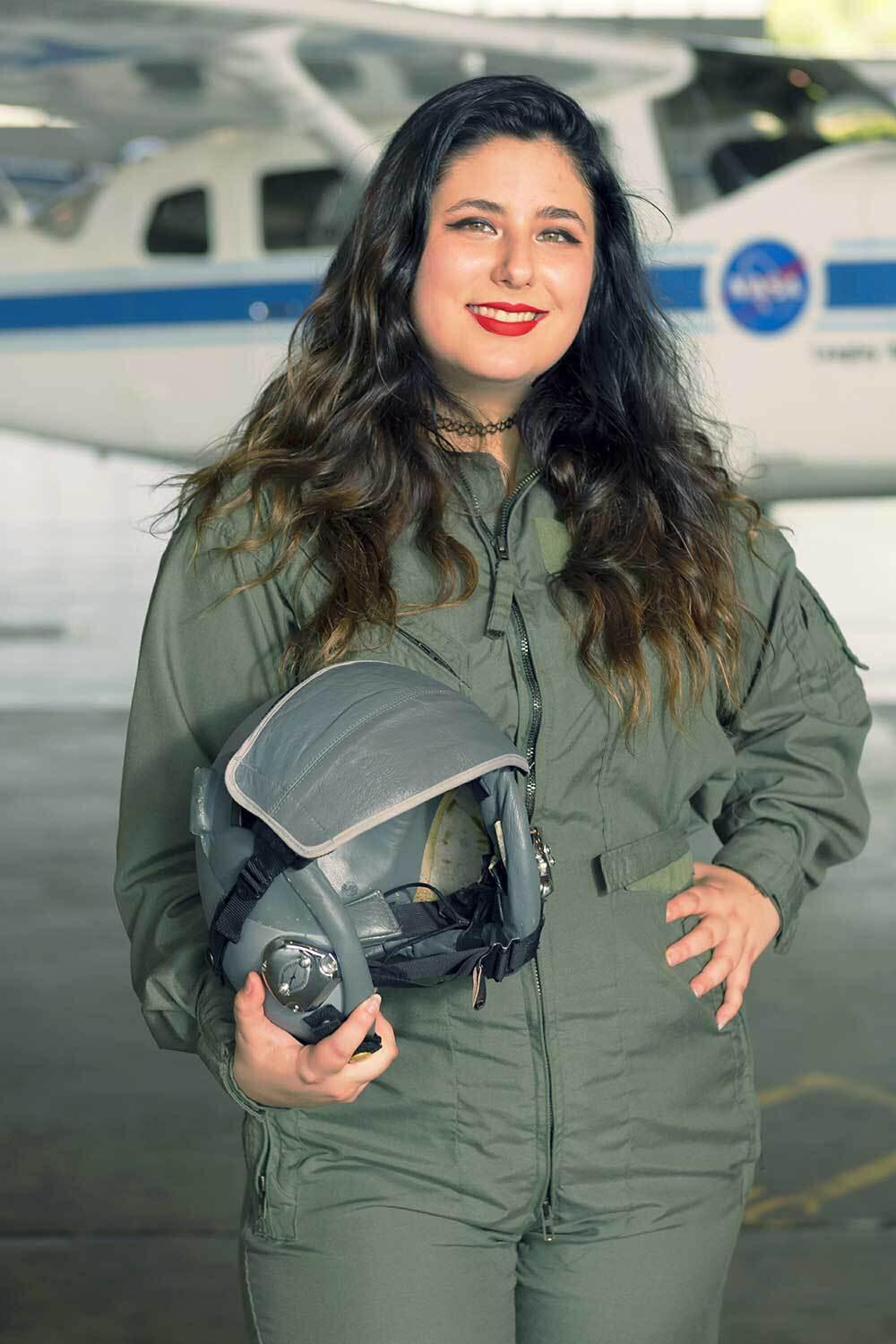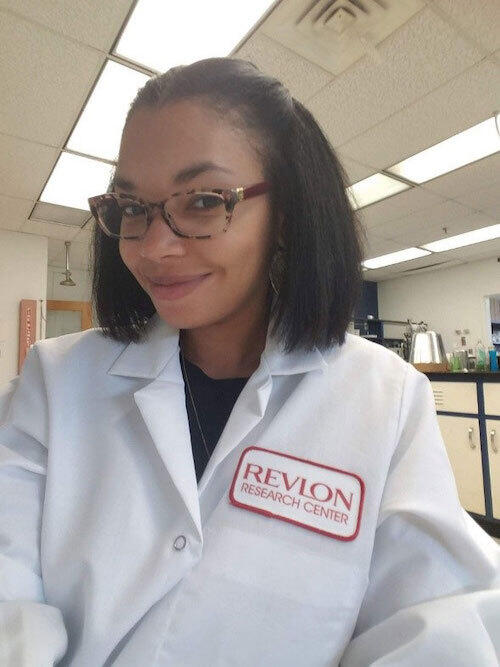
Dec. 2, 2020
Promoting diversity in the field of chemistry
In 2019, 67 women graduated from VCU with bachelor’s degrees in chemistry, fifth-most in the nation.
Share this story
Lilly Balderson spent time looking for the best university for chemistry when she was considering transferring from Stony Brook University in New York. She found her match at Virginia Commonwealth University.
“I liked what they were offering,” said Balderson, who will graduate in May with a bachelor’s degree in chemistry from the College of Humanities and Sciences and a minor in mechanical engineering. “I see a lot of women in chemistry at VCU. Often over half the class will be women. I think VCU is unique in the amount of women it has in the STEM curriculum.”
Increasing participation among women in chemistry is part of a national trend to advance diversity in STEM. In 2019, 67 women graduated from VCU with bachelor’s degrees in chemistry, fifth-most in the nation as ranked by the Integrated Postsecondary Education Data System, the statistics, research and evaluation arm of the U.S. Department of Education. VCU tied with the University of North Carolina at Chapel Hill and the University of California, Irvine.
“Our graduate student numbers for women were also very good in 2019, totaling seven out of 17 Ph.D. degrees in chemistry,” said Samy El-Shall, Ph.D., chair of the Department of Chemistry. “Forty-five percent of our graduate students are women.”

Women also make up about half of the department’s faculty. And several have reached a high level of achievement. LaChelle Waller, Ph.D., director of undergraduate advising and research, is involved in recruiting and mentoring female chemistry students through her role as vice chair of the Virginia section of the American Chemical Society. Last year, Katharine Tibbetts, Ph.D., an associate professor, received the U.S. government’s Presidential Early Career Award for Scientists and Engineers. And Tibbetts, Maryanne Collinson, Ph.D., associate chair and the John B. Fenn Professor in Chemistry; and professors Suzanne Ruder, Ph.D., and Sally Hunnicutt, Ph.D., have been recognized with university awards for scholarship, teaching and early career achievement.
Of all the undergraduates Tibbetts has had in her classes and research group, more than half are women, she said.
“When I took chemistry classes in college women were outnumbered,” she said. “Now women are not in the minority. There is more acceptance of women in chemistry.”
Tibbetts got interested in chemistry in middle school. She likens it to solving puzzles. Collinson was also in middle school when she got interested in chemistry.
“I like it because it’s a challenge. It keeps your mind stimulated,” Collinson said. “I like using my brain and solving problems.”
She also is seeing more women interested in chemistry in her class.
“In some of my classes chemistry is no longer perceived as only being a male field,” she said. “You listen to the news now and you see women scientists, doctors, chemistry professors and dentists and I think that all plays into it. It seems there is more coverage of women in the field.”

Opportunities for women in chemistry have expanded in a number of job sectors as well, including chemicals, industry, pharmaceuticals, research, health-related fields, aeronautics, food and cosmetics.
VCU graduate Jalynn Taylor-Farmer has been working in the skin care department of the research and development center of Revlon in New Jersey for more than three years.
“When I was younger, I didn’t understand that what I liked to do was chemistry,” she said. “I liked to mix things together like my perfumes and creams.”
She enjoyed the hands-on learning and being in the lab at VCU, even though it was very challenging, she said. “In my junior year I landed an internship with a fragrance company near my hometown. The next summer I got an internship with a cosmetic company.”
She found the atmosphere at VCU both encouraging and supportive. “People said positive things about me being in chemistry when I was there,” she said.
Caitlin Cain said there was a feeling of camaraderie in her chemistry classes.
“At VCU, women were really well-represented in all my chemistry classes. The majority of students in labs were women, and we had a number of women professors,” said Cain, a VCU chemistry graduate who was in the Honors College and received a National Science Foundation Graduate Research Fellowship in 2019.
Cain is currently pursuing her Ph.D. in chemistry from the University of Washington in Seattle. She got interested in chemistry in elementary school. Cain would help her mother, a high school chemistry teacher, set up her labs before school.
“I really enjoy chemistry,” Cain said. “It’s the perfect mixture of biology, engineering and math to help solve questions about the natural world.”
After she receives her Ph.D. and completes her postdoctoral research fellowship, Cain hopes to become a chemistry professor. She said she’s glad that universities like VCU are making efforts to increase the number of women on staff in chemistry.
“For a long time, women were underrepresented,” she said. “We are now seeing a surge of women wanting to get into this field. There are a lot of jobs for women in industry and academia.”
Subscribe to VCU News
Subscribe to VCU News at newsletter.vcu.edu and receive a selection of stories, videos, photos, news clips and event listings in your inbox.









